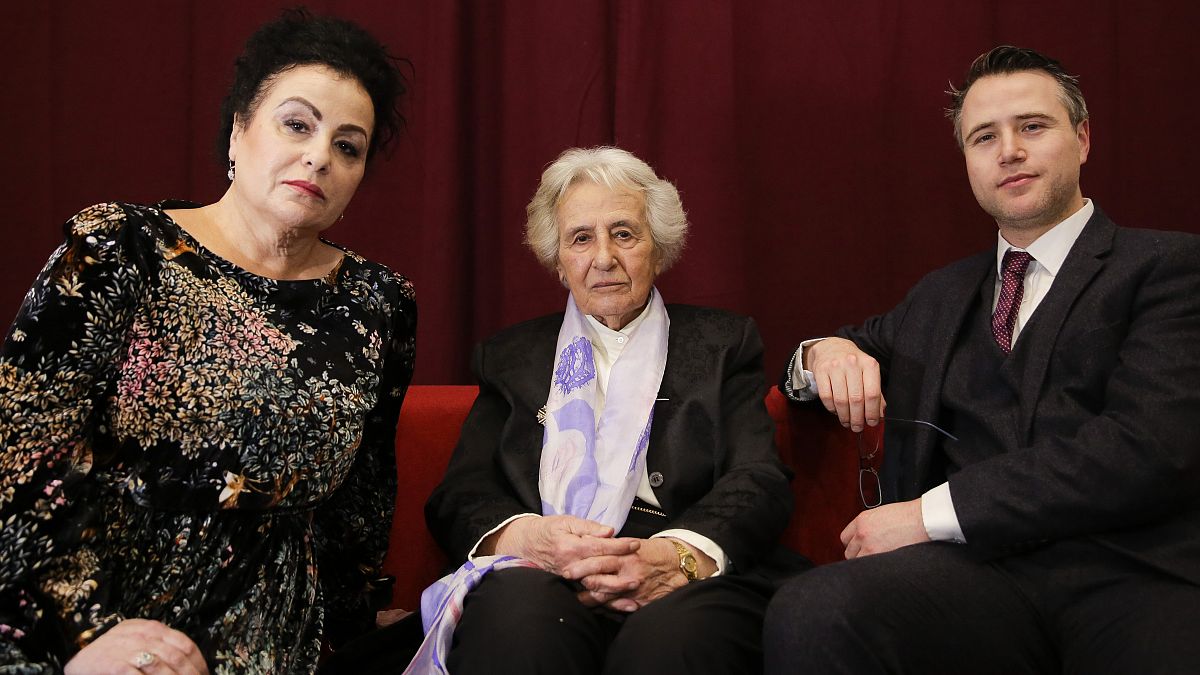Seventy years on from the Holocaust, Brexit is pushing thousands of British Jews to seek a German passport.
His grandmother is an Auschwitz survivor who swore she’d never return to the country that murdered her parents and six million other Jews.
But now Brexit has forced Simon Wallfisch, 36, to do something unthinkable to her: apply for German citizenship.
Seventy years on from the Holocaust, Wallfisch is among thousands of other British Jews to seek a German passport since June 2016.
There have been 3,802 such requests in the last two-and-a-half years under a special provision for people — and their descendants— denied German citizenship from 1933 to 1945 on political, racial or religious grounds.
"This disaster that we call Brexit has led to me just finding a way to secure my future and my children's future," Wallfisch told The Associated Press.
The well-known classical singer and cellist received his German passport in October and it means he will retain freedom of movement rights around the soon-to-be 27-member bloc.
Britons whose relatives have links to other EU countries — especially Ireland — have also been applying for passports around Europe.
But for Jews whose ancestors fled Germany to escape the Nazis, the decision would have been a lot harder.
They would have had to re-examine their long-held beliefs about the country and whether applying for citizenship would betray their relatives.
Wallfisch's grandmother, Anita Lasker-Wallfisch, was 18 in 1943 when she was deported to Auschwitz, the Nazi death camp in occupied Poland where more than one million Jews were murdered.
She survived because as a cellist she had to play classical music while other Jews were taken to the gas chambers.
In November 1944, she was taken to Bergen-Belsen — the concentration camp where diarist Anne Frank died after also being transferred from Auschwitz at about the same time — where she was eventually liberated by the British army in April 1945.
Lasker-Wallfisch migrated to Britain in 1946, got married and had two children. Her career as a famous cello player took her around the world, but it took decades until she overcame her hatred enough to set foot on German soil again in the 1990s.
In recent years, Lasker-Wallfisch, 93, has become a regular visitor, educating children in Germany about the Holocaust.
On Sunday's International Holocaust Remembrance Day, Lasker-Wallfisch, her grandson Simon and her daughter Maya Jacobs Lasker-Wallfisch performed for the first time together on stage at the Jewish Museum Berlin in commemoration of their family.
Before the show, the three generations sat together on the red couch in the museum's dressing room and told The Associated Press about the emotional thoughts that went into the younger two's decision to take German citizenship.
"We cannot be victims of our past. We have to have some hope for change," said Maya Jacobs Lasker-Wallfisch, a 60-year-old London psychotherapist who is Simon's aunt and is still waiting on her German citizenship to be approved. "I feel somehow in a strange way triumphant. Something is coming full circle."
"I feel an aliveness here (in Berlin) that I have not experienced before, but it totally makes sense because, after all, I am German," Jacobs Lasker-Wallfisch said.
But Anita Lasker-Wallfisch, who lived through the horrors of the Holocaust, remained sceptical and pessimistic.
"Jewish people never feel secure," she said to her daughter and grandson, reminding them of her own past. "I had German nationality — it did not buy me security."
